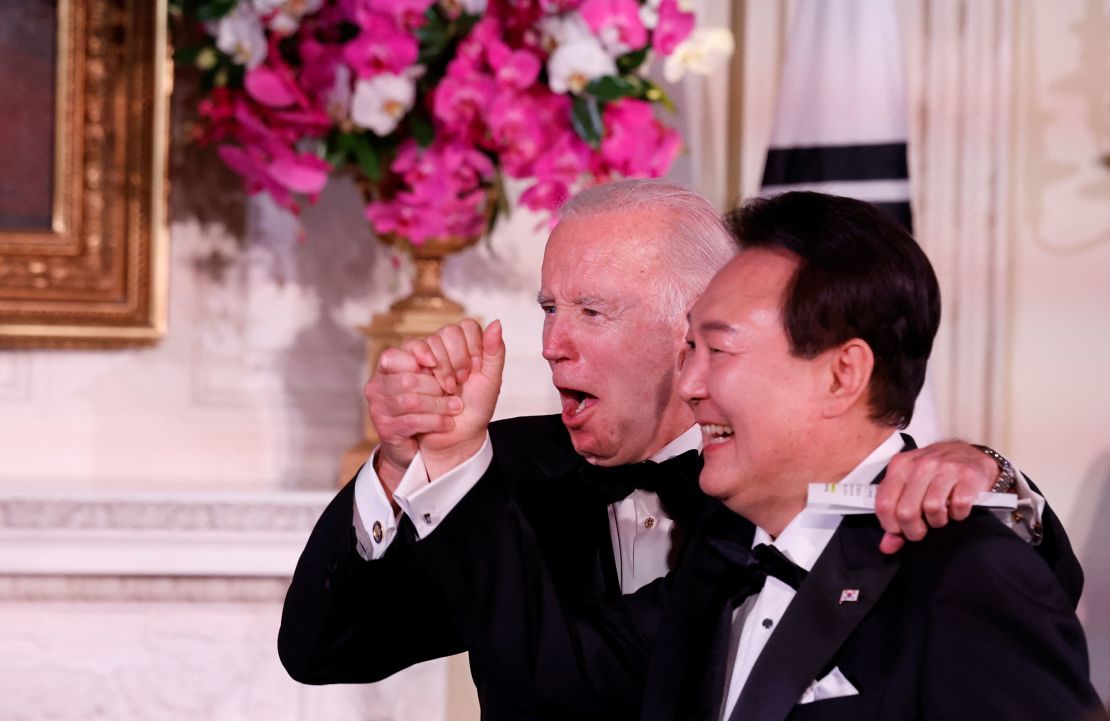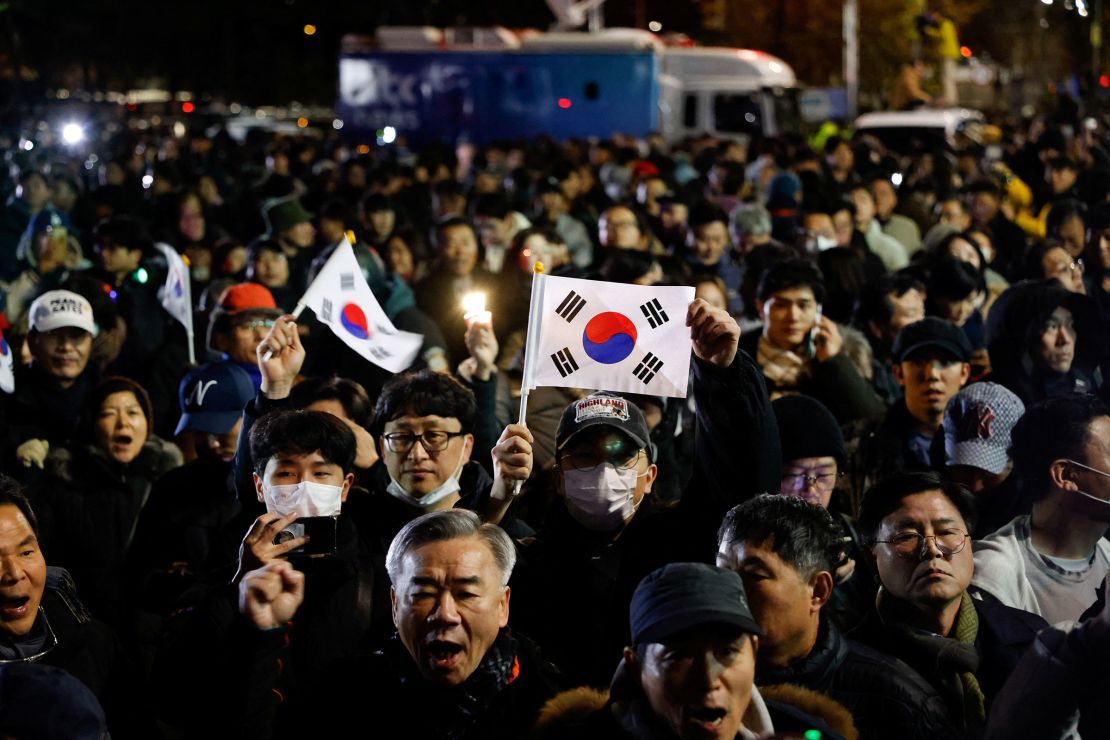CNN
—
A night of political unrest in South Korea has upended the stability of a key U.S. democratic ally — sending shockwaves across the region and Washington at a moment of acute global tensions.
South Korean President Yoon Suk Yeol declared martial law in a surprise decree on Tuesday night, which was lifted hours later after overwhelming opposition across the political spectrum in what was widely seen as a breach of the country’s vibrant democracy.
The move, which Yoon claimed was necessary to “save the country from anti-state forces” seeking to destroy the “constitutional order of liberal democracy,” sparked protests in Seoul and growing calls for the president’s resignation .
The stunning development appeared to surprise Washington. That’s a troubling reality for the U.S. military, which has nearly 30,000 troops and its largest overseas base in South Korea, serving as a check on a belligerent North Korea and a counterweight to an aggressive China in a strategically critical region.
The unrest has the potential for significant impact at a time when geopolitical fault lines are deepening in Asia, where both North Korea and China are strengthening their ties with Russia as it wages war on Ukraine.
Leaders in Pyongyang, Beijing and Moscow are likely watching developments in Seoul for the potential to undermine a key bastion of U.S. power in the region – and all eyes are now on North Korea, which could cause political chaos would like to exploit it to his advantage.
The U.S.-South Korea alliance has long been viewed by both countries as a cornerstone of peace in the region, where North Korea continues to threaten South Korea and the U.S. with its illegal weapons program.
That threat has become all the more acute as North Korea has expanded its partnership with Russia, sending munitions, missiles and soldiers to support Moscow’s war against Ukraine, according to intelligence officials.
“Any instability in South Korea has significant implications for our Indo-Pacific policy,” retired U.S. Col. Cedric Leighton told CNN’s Wolf Blitzer, noting how U.S. troops in the country are preparing for a “fight tonight” scenario against North Korea are prepared. “The less stability there is in South Korea, the harder it will be for us to achieve our political goals.”
US President Joe Biden has worked diligently to strengthen the US partnership with South Korea during his time in office, meeting with Yoon several times, calling the South Korean leader a “great friend” and launching his “Summit for Democracy” earlier this year. to Yoon to host in South Korea.

Biden’s efforts also included a landmark summit with Japan and South Korea in 2023 at Camp David, where the US president sidestepped historic mistrust between the two US allies and brought about increased trilateral coordination.
A spokesman for the US National Security Council expressed “relief” after Yoon changed course on his “worrying statement”, adding that “democracy is the foundation” of the US-South Korea alliance.
Despite U.S. assurances that the alliance remains “ironclad,” Yoon’s surprise move could cast some doubt on the partnership and weaken the burgeoning partnership between Japan and South Korea, observers say.
It also heightens uncertainty on the eve of the return to the White House of President-elect Donald Trump, who had previously expressed skepticism about the financial agreement between the United States and South Korea to host US troops.
“Yoon’s actions will most likely raise questions about South Korea’s reliability and predictability as an ally and partner in the eyes of the United States and Japan,” said Rachel Minyoung Lee, a senior fellow at the Stimson Center think tank in Washington.
“This is serious given that there is now a stronger nuclear component than ever before in the (U.S.-South Korea) alliance,” she added, referring to a mechanism starting in 2023 that would ensure cooperation on nuclear deterrence between the U.S. and South Korea, which has no nuclear weapons of its own but relies on the US arsenal.
The political unrest also offers Kim Jong Un an opportunity to capitalize on the chaos.
The North Korean leader is known to choose opportune political moments for major weapons tests – such as the launch of a new intercontinental ballistic missile just days before last month’s US presidential election.
“We know that North Korea likes to mock South Korea’s democratic system when there is turmoil in Seoul,” said Edward Howell, a lecturer in politics at the University of Oxford in the United Kingdom who focuses on the Korean peninsula.
“We should not be surprised if Pyongyang uses the domestic political crisis in South Korea to its advantage, rhetorically or otherwise,” he said.

The developments – and the potential for a leadership change in South Korea – will also likely be closely watched by Beijing and Moscow, both of which strongly oppose the US military presence in Asia.
Chinese leader Xi Jinping and his officials in particular have watched with fury as the U.S. has strengthened its partnerships with allies in the region amid concerns in Washington about a growing threat from Beijing and deepening security coordination with Moscow.
And Yoon, who has taken a tougher line toward North Korea than many of his predecessors, has willingly been a loyal U.S. partner.
The Yoon administration has also suggested that stationing North Korean troops in Ukraine could lead it to reassess the extent of its military support to the war-torn country, which does not directly supply it with lethal weapons.
All of this, Howell says, raises the international stakes for the current political moment, regardless of the outcome for Yoon.
“At a time when South Korea’s interests in the Ukraine war have become more prominent, Seoul’s cooperation with allies cannot be hampered by domestic political divisions given North Korea’s now extensive involvement,” he said.



